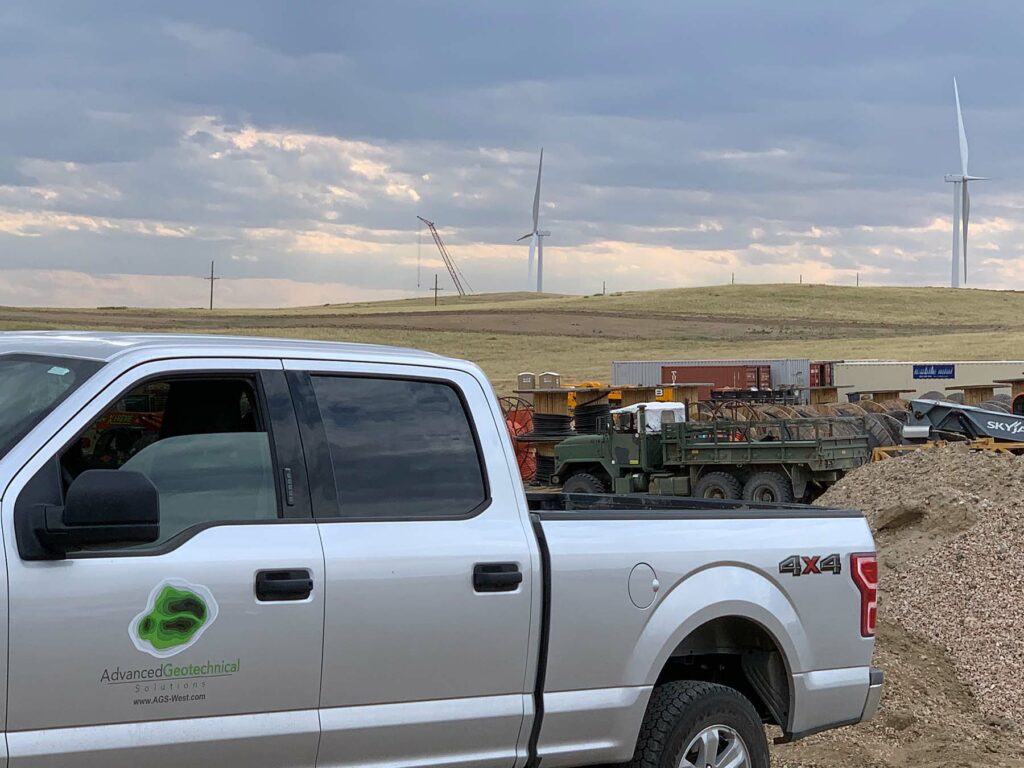Our Construction Observation and Materials Testing (CMT) services encompass a comprehensive range of skills to help ensure your project meets plans and specifications. We perform construction observation and materials testing services with experienced engineers and technicians with significant training certifications for concrete, aggregates, soils, and asphalt. These trainings often include ACI field and laboratory certifications and WYDOT certifications. Our experienced engineers observe deep and shallow foundation installations, proof rolls, and reinforcing steel (rebar) to name a few among the many we are capable of.
We back our field testing with an AASHTO-accredited laboratory in soil, aggregate, and concrete, and offer a wide range of laboratory tests for construction materials, including, but not limited to, gradations, proctors, plasticity tests, and concrete compressive strength testing.

An essential part of all construction projects is testing soil and aggregate for 1) compliance with approved materials characterizations that typically require laboratory analyses, and 2) confirming in-place conditions such as density and moisture.
Our expertise covers:
The above tests are frequently requested but our expertise is not limited to these. Give us a call to request any number of specific tests!
Concrete testing plays a critical role in verifying compliance with required standards and design specifications. Additionally, it provides reliability that the supplied concrete remains consistent and reliable in the construction process.
Here are a few commonly performed concrete tests aimed at ensuring that it meets the necessary standards and design specifications for its intended use:
Many of our engineers and technicians are ACI certified in levels I and II for field and laboratory concrete testing, as well as WYDOT certified.
We perform construction observation services with experienced engineers when possible because advanced is our standard. Our engineers hold many training certificates in construction materials testing along with professional development training specific for construction observation. We commonly provide the following observation services but perform others as well. Give us a call to discuss your specific needs.
We provide a continuously growing suite of asphalt services so that you can rest assured pavement section of your project is constructed with quality. The observations and testing performed on asphalt are essential during construction and capabilities include:
We provide a continuously growing suite of asphalt services so that you can rest assured pavement section of your project is constructed with quality. The observations and testing performed on asphalt are essential during construction and capabilities include: